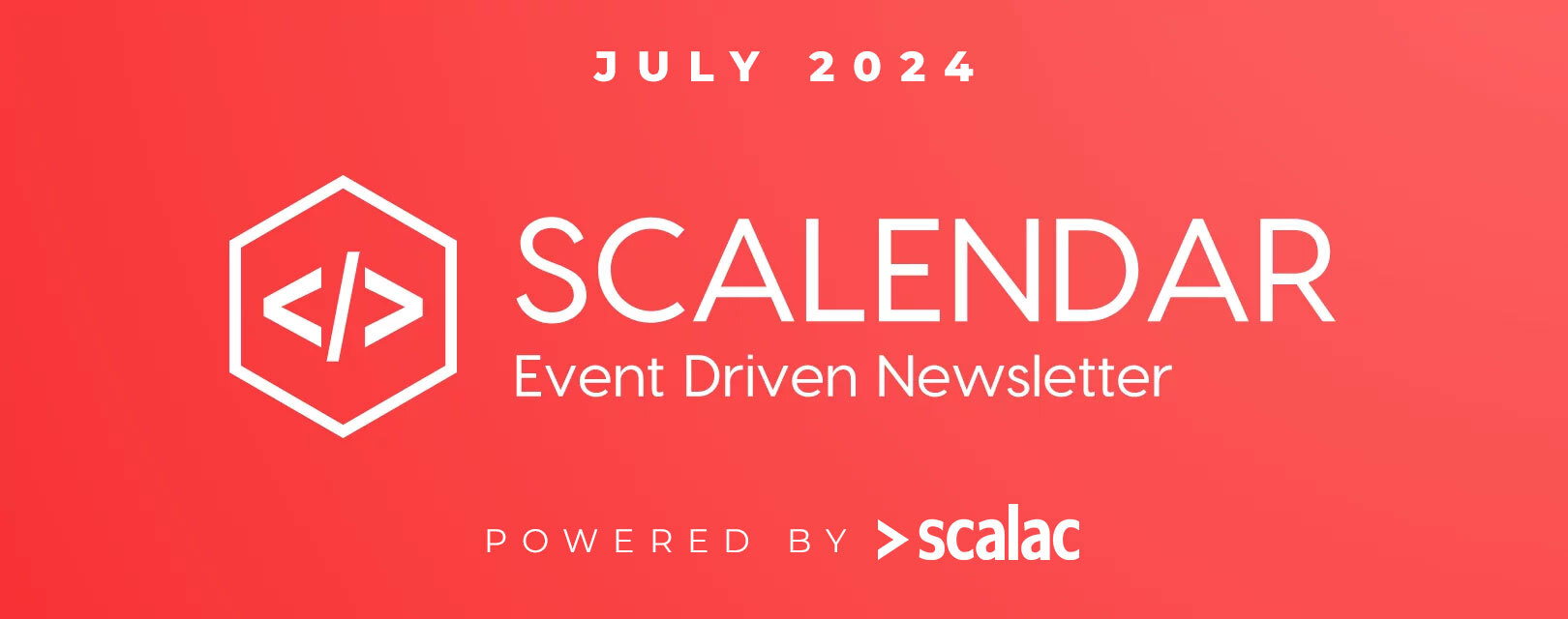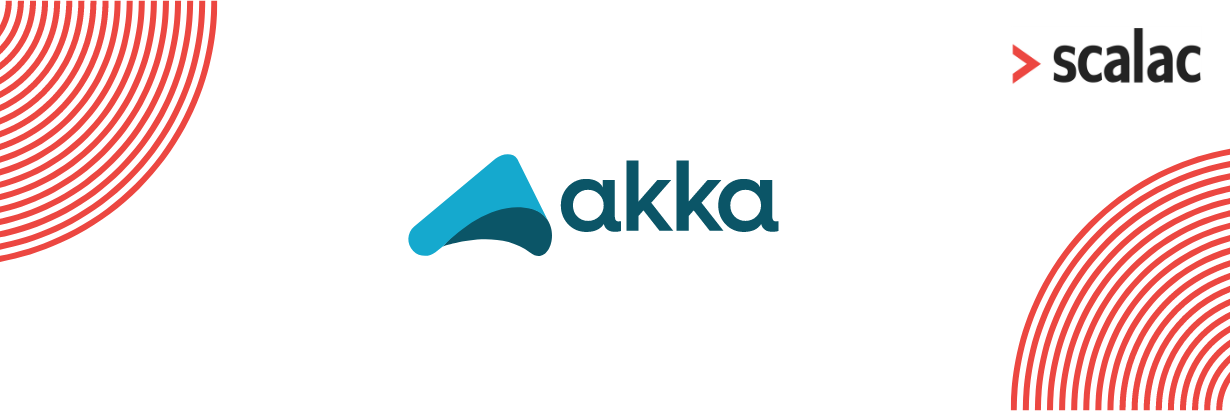This site uses Cookies. Read privacy policy.

ZIO is a purely functional, type-safe, composable library for asynchronous, concurrent programming in Scala.
ZIO is ideal for mid to large-scale projects that require a lot of concurrency and speed.

ZIO is a zero-dependency Scala library, part of Scala, one of the most popular functional programming language.
ZIO was developed to solve complex, modern business problems using simple, testable, and composable code. Powered by highly-scalable, non-blocking fibers that never waste or leak resources ZIO supports you in developing highly scalable, resilient, and reactive applications.
It gives the ability to break down the problem to smaller problems, and then solve them individually. The beauty comes when you start composing those solutions into a new solution. The composition and abstraction gives you the ability to reuse code across your codebase and team members. That’s when you get efficiency and speed. It results in building higher quality software. It’s not only you are building quicker, you build high quality software as well.
"
Scalable applications with 100-times better performance than Scala’s Futures
The full power of the Scala compiler can
catch bugs at compile time
Sequential code that looks the same
whether asynchronous or synchronous

Concurrent apps without deadlocks, race
conditions, or complexity
Apps that never leak resources
(including threads!), even when they fail
Simple building blocks that provide rapid
solutions to complex problems

Great responsiveness. Run more resilient applications that can respond to failures in a flexible way.
Less bugs - less money lost because of your system going out of service
Apps that respond to failures locally and flexibly and never lose errors
Asynchronous code - as easy as synchronous code and able to handle every error, never leaking resources.
Concurrent code that scales easily, without locks or deadlocks, with maximal laziness and resource safety.
Powerful asynchronous queues that build work processing flows and ration scarce resources.
Robust retry strategies,making
Powerful asynchronous queues that build work processing flows and ration scarce resources.
Efficient, lazy, concurrent streams that can handle huge or infinite amounts of
data in constant heap space.
Trivial partitions with multiple parallel fibers, making short work of CPU-intensive processing.
Flexible, composable schedules for repeating work, such as report generation or email notifications.
Built-in, powerful combinators, property based testing and seamless mocking capabilities for easy testing of effectual programs.
for someone who's writing in Scala
One of Scala’s main benefits is its combination of function-oriented and object-oriented programming paradigms.
Scala syntax isn’t as strict as some other languages, which is beneficial in regards to both development and testing. The syntax is also much more concise compared to Java, which can mean long-term efficiency gains for businesses.
Scala can be used to build a wide variety of programs, including apps, games, software-as-as-service, databases, and more. Developers have access to an array of advanced features that leverages the JVM.
Scala is compatible with Java (it is compiled into Java Byte Code), which means that developers can fully leverage their Java libraries and the Java SDK. It provides many features that are lacking in Java, such as lazy evaluation and currying.
Scala is a relatively easy language to learn. Comprehensive documentation and a large community of users make it an excellent new option for developers. This is important for businesses when evaluating costs. It’s also worth remembering that this ease-of-use isn’t provided at the expense of functionality. Scala has a very “mature” backend.
Because Scala provides much of the same functionality as Java, but with fewer lines of code, it’s generally easier to create and troubleshoot programs. It’s also possible to write programs very quickly in Scala. Even when compared to languages like Python, the comparatively low effort required to maintain and test Scala programs almost always makes it the better choice.

In a very easier way than using traditional approaches from object oriented programming. You don’t need to think about low-level constructs such as Locks, and hence you don’t need to worry about problems like deadlocks or race conditions, which are problems that are very difficult to diagnose and resolve and they generally happen in production environments.
John A De Goes pioneered a new approach - working alongside ZIO contributors from Scalac. Now we can now easily test functional effects, and compare two effects for equality. The ZIO environment allows us to regain testability, but without any additional ramp-up time (beyond the ramp-up required for functional effects). All in all, it now feels Scala has its own solution for testing functional effects.
ZIO's other main strength is its friendliness toward beginning functional programmers. Unlike tagless-final, its approach is fully inferable, modular, and can be used incrementally, exactly when and where it's needed to be.

Refactoring ZIO code is a delight, you don’t have to worry about changing the behaviour of your program while you do it
Read moreIn this video, you will find out why the principles of Scala should be applied everywhere.
Mat Gren, Head of Business at Scalac, and Zuka Kakabadze, CTO at Fugo talk about the business benefits of using functional programming and most importantly ZIO – Type-safe, composable asynchronous and concurrent programming for Scala.
Fugo is a #startup that chose functional programming and ZIO to scale its #MVP. See what were the business reasons behind this decision. Also, find out why it’s https://www.youtube.com/a really great approach to think longterm. To think about Scalability from day one and build your scalable MVP in Scala.

Today, on July 19, 2024, a CrowdStrike code update led to global issues affecting Windows computers. The operating systems crashed repeatedly, displaying Blue Screen of Death (BSoD), keeping them in a non-usable loop state. This outage caused around 1400 flights to be cancelled, as well as numerous services to be stuck in a dysfunctional state: […]

Welcome to the July edition of our newsletter! We bring you the latest updates on Scala conferences in July 2024, as well as frontend development and software architecture events. There are several conferences and meetups this month for developers of all levels, despite the start of a vacation season. Whether you’re looking to deepen your […]

Why do you need Akka Specialists? Today’s global software development ecosystem is, to say the least, fast-paced, dynamic, and diverse. Every company, even partially operating in it, should always keep its finger on the pulse – innovation is the key to staying ahead of the competition. Companies constantly look for new ways to improve the […]
We will reach out to you in less than 48 hours
to talk about your needs.
We will perform a free tech consultation
to see which stack fits your project best.
We will prepare the project estimate in 3 days
including the scope, timelines, and costs.
We'll get back to you soon!